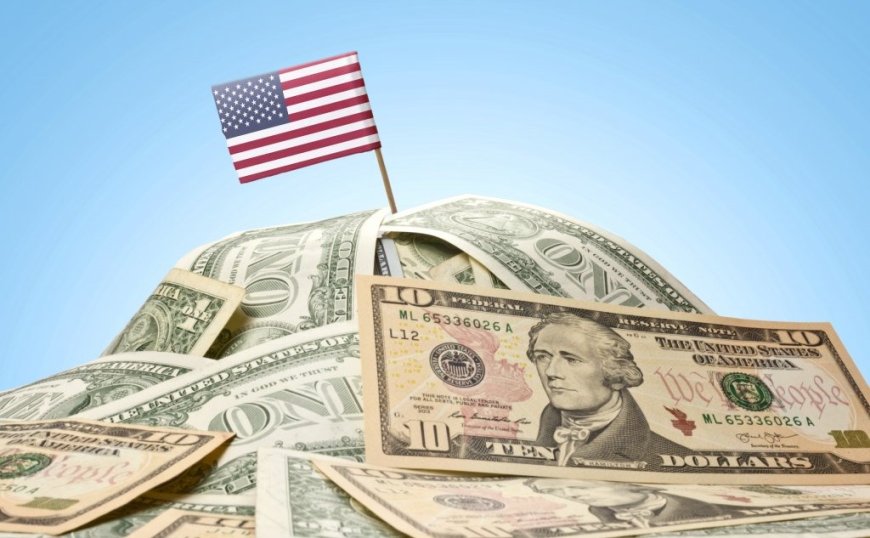Economic Boost Ahead: Congress Weighs Tax Deal for More Cash in US Economy
Get insights into the potential cash boost for the US economy as Congress considers a tax deal. Learn how this move positively impacts financial growth.

US economy teeters on the edge of a significant fiscal stimulus as lawmakers explore a potential tax deal, presenting $70 billion in tax breaks for both businesses and families. The ongoing discussions are focused on reinstating expired business tax breaks and enhancing the child tax credit, with an equitable distribution between the two sectors. However, the challenge lies in navigating a divided Congress, with certain Republican lawmakers advocating for substantial spending cuts to prevent a government shutdown on Jan. 19 and Feb. 2, aligning with the expiration of temporary funding.
If approved, the proposed tax breaks could have a dual impact on an economy moving toward a gradual slowdown. While injecting additional capital into the system would invigorate consumer spending, economists caution that it may also rekindle inflationary pressures, potentially complicating the Federal Reserve's ability to lower interest rates in the upcoming year. Recent data for December suggests an uptick in inflation, primarily driven by rising service costs, while the decline in goods prices has tapered off. The consumer price index surged by 3.4% in the year through December, marking the highest increase in three months, with prices for clothing and cars continuing to climb.
Mickey Levy, a visiting scholar at the Hoover Institution, emphasizes that these tax measures would further stimulate an already rapidly growing economy, primarily sustained by the lasting effects of pandemic-era fiscal stimulus.
“There’s already substantial fiscal stimulus driving up economic activity,” Levy stated.
Analysts underscore that the outcome hinges on the final details of any agreement and the structure of the proposed tax breaks, expected to extend through 2025.
As negotiations unfold, potential obstacles have surfaced, including differences over the state-and-local tax deduction cap, an expansion of the low-income housing tax credit, and a more robust child tax credit.
If an agreement materializes, funds could begin flowing to households as early as March, according to Marc Goldwein, senior policy director for the Committee for a Responsible Federal Budget. However, Goldwein cautions that the proposal might not significantly encourage additional corporate investment.
The proposed deal aims to revive tax breaks for research and development spending, enhance the deductibility of investments in equipment, and provide support for business loans. Lawmakers are considering restrictions on benefits for foreign research investments to target companies conducting such activities within the US.
“This is going to be a substantial fiscal cost with minimal encouragement for new investment at a time when inflation pressures persist,” Goldwein noted.
Despite potential drawbacks, the plan could serve as a political win for President Joe Biden, whose approval ratings have waned amid voter concerns about the economy. In addressing potential inflationary impacts, National Economic Council Director Lael Brainard highlighted the bill's benefits.
“We are very much hoping that we can see a balanced package,” Brainard stated. “But what is crucial for the president is that the child tax credit be extended and particularly be made available for low and moderate-income families, as it is potent in reducing child poverty.”
However, the child tax credit boost under consideration falls short of the Covid-era version, and its overall impact on the broader economy is anticipated to be relatively modest, according to Nancy Vanden Houten, a lead economist at Oxford Economics.
As tax negotiations progress, the overall size of the proposed tax package may not be sufficient to alter predictions of a Federal Reserve rate cut in May.
“The impact on the broader economy would be relatively small and probably not enough to change our forecast for inflation and the Fed,” Houten remarked.
The ongoing tax negotiations underscore that lawmakers are still distant from embracing fiscal austerity, despite warnings from ratings firms and investors about the unsustainable trajectory of the US fiscal situation.
If the tax proposal gains approval, negotiators aim for Congress to enact it before the start of the annual tax-filing season on Jan. 29, potentially providing another boost to an economy navigating uncertain terrain.
“If it passes, it becomes another avenue for economic revitalization, but the necessity of such a move remains debatable,” remarked Owen Tedford, a senior research analyst at Beacon Policy Advisors LLC.
Also Read: JPMorgan Chase Achieves Record Annual Profit of $49 Billion, Surpassing Rivals





























































